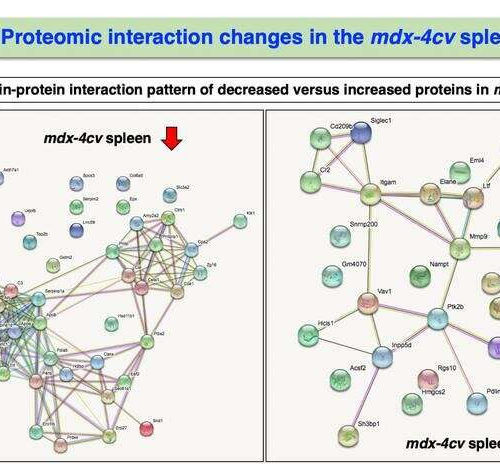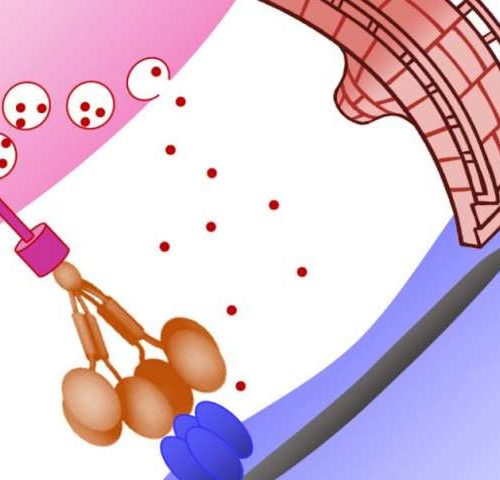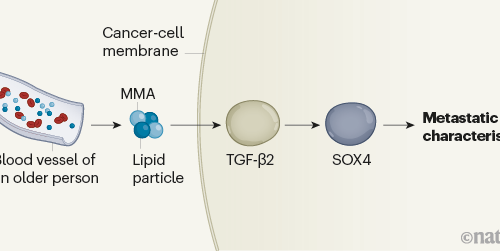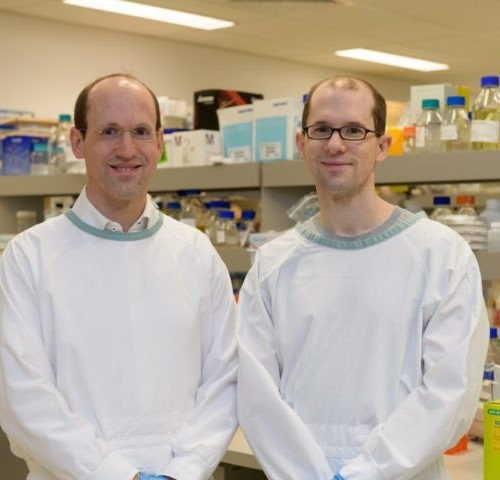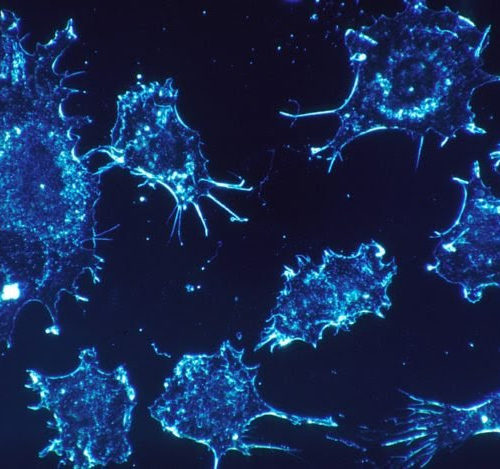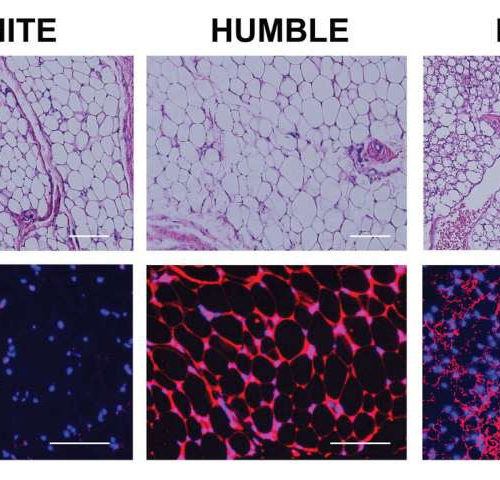Synthetic compound could serve as prototype for a novel class of drugs to treat neurological damage DZNE – GERMAN CENTER FOR NEURODEGENERATIVE DISEASES Researchers from the German Center for Neurodegenerative Diseases (DZNE), UK and Japan have developed a neurologically acting protein and tested it in laboratory studies. In mice, the experimental compound ameliorated symptoms of...
‘Crosstalk’ between muscle and spleen in Duchenne muscular dystrophy
by University of Bonn The figure shows an overview of the potential protein-protein interaction patterns at reduced (left) and increased (right) protein concentrations in the spleen of Duchenne mice. Credit: Maynooth University Duchenne muscular dystrophy (DMD) is the most common muscle disease in children and is passed on by X-linked recessive inheritance. Characteristic is a...
A tailor-made molecule that ties nerve connections
by German Center for Neurodegenerative Diseases CPTX (orange) combines functional domains present in natural synaptic organizing proteins in a unique way. The compound was designed to act as a universal bridge builder for excitatory connections between nerve cells. Credit: DZNE / Alexander Dityatev Researchers from the German Center for Neurodegenerative Diseases (DZNE), UK and Japan...
Antiviral used to treat cat coronavirus also works against SARS-CoV-2
by Gillian Rutherford, University of Alberta Faculty of Medicine & Dentistry Biochemist Joanne Lemieux worked with three other University of Alberta researchers on a new study showing that a drug that cures deadly peritonitis in cats also works well enough against the coronavirus that causes COVID-19 to fast-track it into human clinical trials. Credit: University...
Breakthrough in using stem cells to treat enteric nervous system disorders
by University of Sheffield Scientists have made a breakthrough in understanding how the enteric nervous system forms, which could pave the way for new treatments for neurodegenerative diseases such as Parkinson’s. The findings, published in the journal Stem Cell Reports, pave the way for using stem cells to understand and treat a range of diseases...
Molecules in the blood of older people promote cancer spread
A molecule produced by the metabolism of proteins and fats has been found to accumulate in the blood of older people, and to endow cancer cells with the ability to spread from one site in the body to others. As we get older, the risk that we will develop cancer increases, because we accumulate genetic...
Gene therapy could potentially reverse memory loss from Alzheimer’s in humans
Researchers from Macquarie University have discovered a world-first new treatment that reverses the effects of memory loss associated with Alzheimer’s disease in a study of mice with advanced dementia. The research, co-led by two brothers, Dr Arne Ittner and Professor Lars Ittner, from Macquarie University Dementia Research Centre, builds on their work begun in 2016...
Researchers discover cell communication mechanism that drives cancer adaptation
Collaborative Cancer Research UK-funded studies from University of Oxford researchers have uncovered a new mechanism by which cancer cells adapt to the stresses they encounter as they grow and respond to therapies. This mechanism involves cells releasing small vesicles, known as exosomes. These contain complex mixtures of proteins, RNAs and other molecules, which can re-programme...
Transplanted brown-fat-like cells hold promise for obesity and diabetes
by Joslin Diabetes Center Microscopic images of the various types of fat tissues developed in mice after transplantation. Top panels show the fat tissue’s general morphology, and the bottom panels are the tissue sections stained with hUCP1 (red color), which is unique for brown fat cells. These images show that while the HUMBLE fat cells...
Female chromosomes offer resilience to Alzheimer’s
by University of California, San Francisco Women with Alzheimer’s live longer than men with the disease, and scientists at UC San Francisco now have evidence from research in both humans and mice that this is because they have genetic protection from the ravages of the disease. By virtue of having a second X chromosome, women...

